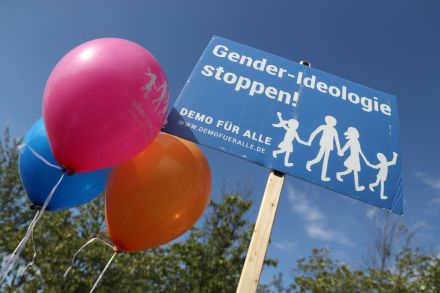How the gender debate is dividing Germany
Pronoun politics can be something of a minefield. But if you think the gender debate is confusing, spare a thought for our German cousins. The quirks of the language make it hard to avoid causing offence, even for those determined to tread carefully. German, as with French and Spanish, has different noun endings for masculine and feminine words. For example, eine Ärztin specifically refers to a female doctor and ein Arzt to a male doctor. The masculine form is used most frequently and as a sort of gender catch-all. And it’s here that the issue arises. The language has, to be fair, adapted to cater for modern sensitivities. In modern



